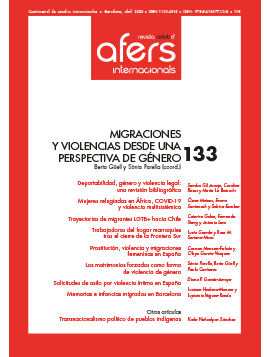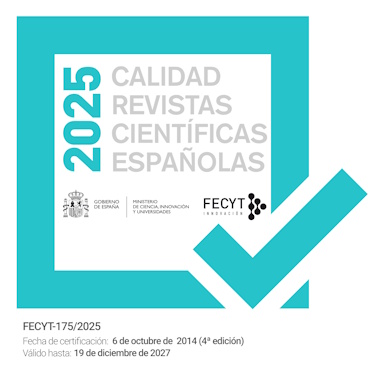Prostitution, violence and female migration in Spain
Keywords:
mujeres, extranjería, prostitución, trabajo sexual, criminalización, EspañaAbstract
Revista CIDOB d’Afers Internacionals, nº 133, p. 113-135
Quadrimestral (January-April2023)
ISSN:1133-6595 | E-ISSN:2013-035X
DOI: doi.org/10.24241/rcai.2023.133.1.113
Reception date: 01.09.22 ; Acceptance date: 27.01.23
Prostitution is the subject of some of the most complex and fragmented of all current debates in Spain. To contribute to this debate and understand the situation facing women in this sector, ethnographic data and 41 interviews were gathered over three years. The results show, among other things, that women engaged in sex work are affected by several types of inequality and intersectionality (gender, nationality, ethnicity, family burdens, administrative status, language, level and location of prostitution) that shape their situation within the sex industry, offering them greater or lesser protection from violence. The threat of violence comes above all from clients, partners, pimps, the conditions around them and police persecution. What is more, negative and criminalising attitudes towards prostitution lead to greater stigmatisation and violence. In spite of this, women have developed self-defence mechanisms and created support networks.
>> The full text articles are available in Spanish language













